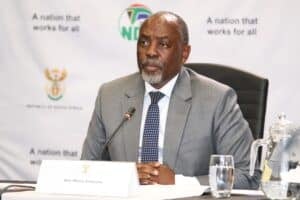The exclusion of independent candidates 'is inconsistent with citizens' unqualified rights to stand for political office'.

The Organisation Undoing Tax Abuse (Outa) has applied to the Constitutional Court for permission to join the New Nation Movement NPC and others in a case calling for electoral reform.
News24 previously reported that following a Constitutional Court judgment in June last year, in which Chief Justice Mogoeng Mogoeng noted that there was no reason why any citizen could not stand as an independent candidate to be elected to municipal councils, provincial legislatures or the National Assembly, civic group New Nation Movement approached the Western Cape High Court to argue that the Electoral Act was not in line with the Constitution.
Currently, the Act states that a citizen needs to be a member of a political party to hold national or provincial office.
It also contains no provisions on which constituency an independent can represent or how seats would be allocated in the National Assembly, should a candidate wish to run.
The applicants asked the Western Cape High Court for an order compelling Parliament to remedy the “invalidity” of electoral laws to allow independent candidates to stand for national or provincial elections before the May 8 poll, arguing that the Constitution made no demand that individuals be members of political parties.
The application was ultimately unsuccessful.
An appeal to the Constitutional Court based on urgency was also dismissed.
However, the applicants have a second chance to argue the merits of the case before the Constitutional Court, which is due to be heard on Thursday.
Outa has sought the permission of the court to join the case as an amicus curiae (a friend of the court).
In a statement, Dr Heinrich Volmink, Outa executive director for the national division, said the case was about promoting accountability.
Advocate Stefanie Fick, Outa’s chief legal officer, said the current system emphasised party loyalty.
MPs and MPLs “are bearers of the rights to freedom of association, conscience, expression and political choice,” said Fick in her affidavit, supporting Outa’s application.
“They exercise these rights – and, in particular, the right to make political choices – in the discharge of their parliamentary functions, both in their own right but also on behalf of the electorate that they represent.”
Fick continued that the current system, based on party representation, results in MPs and MPLs who were “primarily representative of, and beholden to, the political party to which they belong” with the consequence being that party loyalty was placed above election promises.
“Independent candidates are more answerable to their voters as they face a real likelihood of being voted out if they fail to honour election promises. A system which allows for independent candidates will help mitigate the threats to accountability of the party list system,” said Fick.
Outa’s arguments will be based on sections 18 and 19 of the Constitution.
Sections 18 and 19 relate to the right to freedom of association and the right to political choices, including the right to stand for public office.
This includes the “right to dissociate from political parties”, said Outa in the court papers. “An electoral system that forces citizens to join or form a political party in order to stand for office necessarily circumscribes the right to freedom of association.”
Sections 46 and 105 also require that Parliament prescribes legislation for an electoral system.
Outa will argue that these sections do not give Parliament an unconstrained choice regarding electoral systems.
The exclusion of independent candidates “is inconsistent with citizens’ unqualified rights to stand for political office”.
For more news your way, download The Citizen’s app for iOS and Android.






